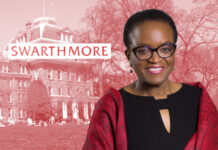 Millennials are considered the least racially biased demographic in America. But a new study led by UCLA assistant professor of sociology S. Michael Gaddis reveals that when it comes to actions — like judging who would make a good roommate — millennials still show strong racial bias and anti-Blackness.
Millennials are considered the least racially biased demographic in America. But a new study led by UCLA assistant professor of sociology S. Michael Gaddis reveals that when it comes to actions — like judging who would make a good roommate — millennials still show strong racial bias and anti-Blackness.
The researchers sent 4,000 responses to real “roommate wanted” ads posted by millennials in Boston, Chicago, and Philadelphia. They used names that signaled the race of the room seekers.
The results showed that White-sounding names received the most responses, while those that signaled Black, Asian or Hispanic potential roommates got fewer responses. Emails with names that combined ‘Americanized’ first names with Asian or Hispanic last names got more attention than those with more typically ethnic first names.
“Essentially, when it comes to many racial issues, we cannot just ask people what they think and trust that their response is truthful,” Dr. Gaddis said. “Researchers must use a specific type of field experiment that requires us to engage in deception by pretending to be someone we’re not — for example, a Black room seeker — and examine how people react when they don’t know they are being watched.”
Dr. Gaddis, and his co-author Raj Ghoshal of Elon University in North Carolina, conclude that “our study suggests that as millennials continue to gain access to positions of power, they are likely to perpetuate racial inequality rather than enact a post-racial system.”
The full study, “Searching for a Roommate: A Correspondence Audit Examining Racial/Ethnic and Immigrant Discrimination Among Millennials,” was published on the website of the journal Socius: Sociological Research for a Dynamic World. It may be accessed here.












This redundant research is nothing more than another attempt to attack so-called Black students and not the racist White, Asian, and Latino students along with these perverted PWIs. The facts remain is that so-called Black students and Black community need to recognize they have “no permanent friends”.